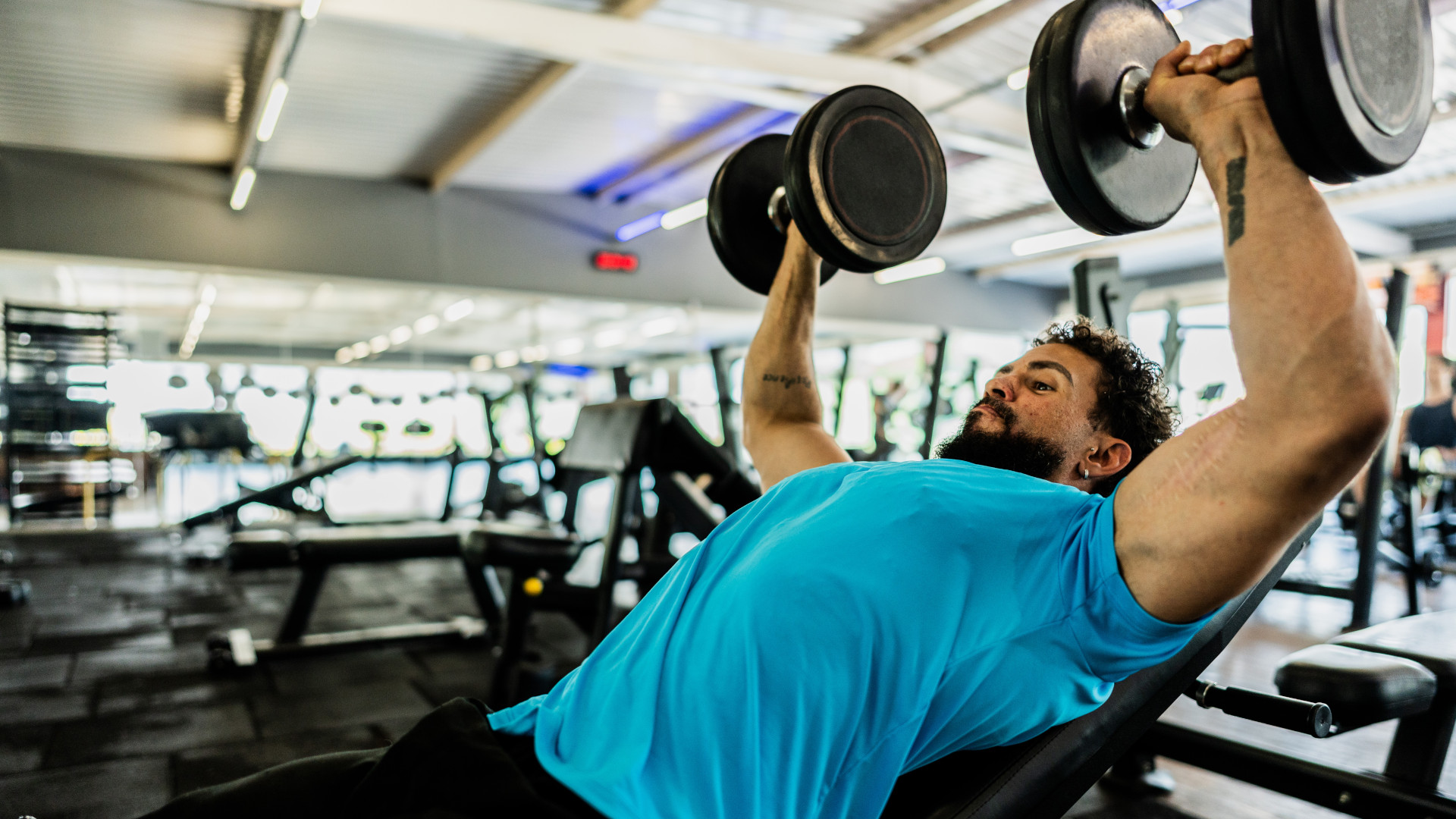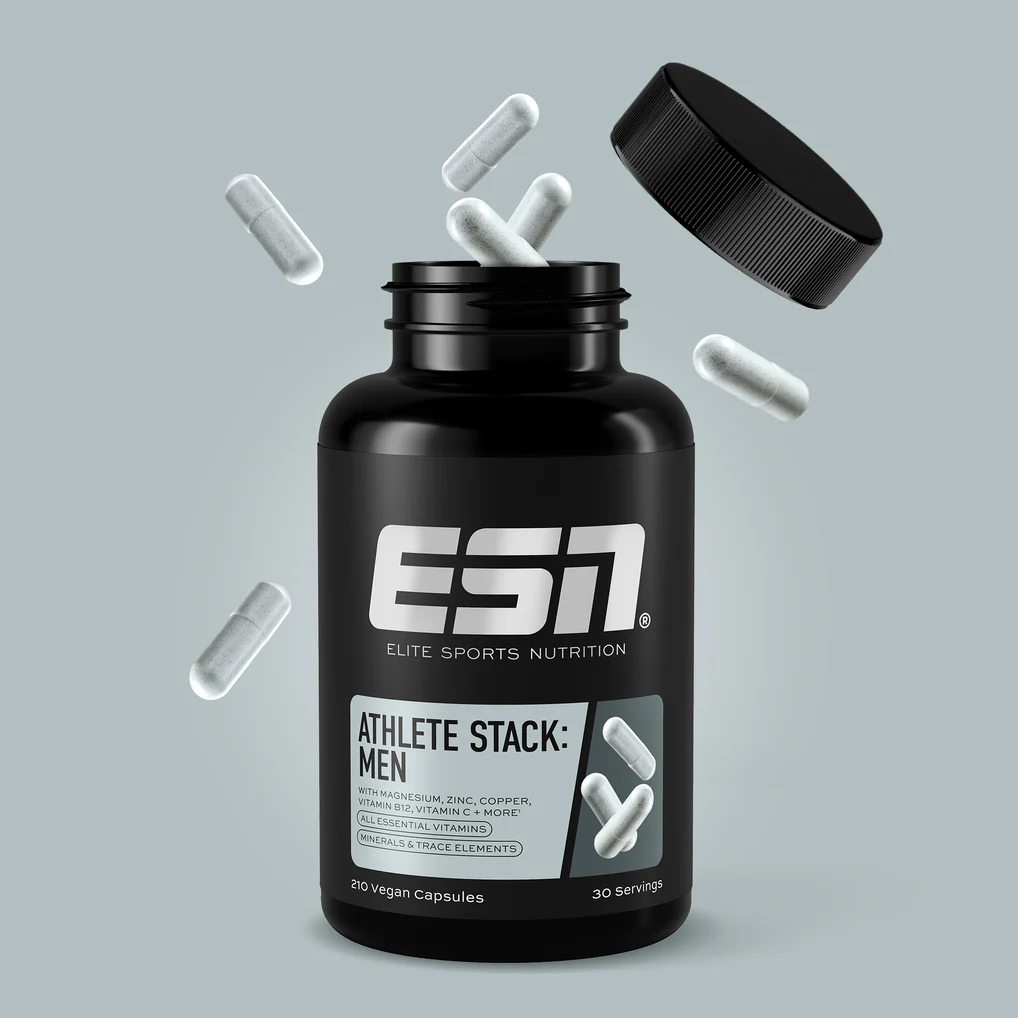How to pick the best sports supplements for peak performance
Whether you're looking to build muscle or boost your recovery, an expert reveals how to pick the right supplements for your goals


Get all the latest news, reviews, deals and buying guides on gorgeous tech, home and active products from the T3 experts
You are now subscribed
Your newsletter sign-up was successful
The sports supplement scene can be a tricky one to navigate, as there are a lot of pills and powders out there. While some products genuinely support muscle growth, recovery, and performance, others offer little more than hype – so trying to figure out what you need isn’t always easy.
The ideal option is to get all the nutrients you need through whole foods and, guaranteed, a lot of people are just taking supplements willy-nilly. But the reality is that certain fitness goals – like building muscle – can be tough (and expensive) to hit through diet alone. That’s where smart supplementation comes in.
FYI, sports supplements aren’t magic fixes; they’re designed to supplement a solid diet and training routine, not replace one. In this guide, we break down how to choose the best supplements based on your goals, and how to spot high-quality products that actually deliver.
Are all sports supplements worth it?
There are some sports supplements that are a lot more popular than others, and this is often those that actually have scientific research behind them, as opposed to just anecdotal evidence.
Protein powder and creatine are among the two most popular. While the latter has scientific studies to back its recovery enhancements, helping you train harder, the other is critical for muscle growth and helping you feel fuller for longer.
Sports Nutritionist and Chief Product Officer at ESN, Nicolas Lother, also adds that pre-workout supplements are a gym bag staple, as well as omega-3 fatty acids, for reducing inflammation and improving recovery, and electrolytes for maintaining hydration levels and muscle function during prolonged training.
“Supplements generally considered less worthwhile include BCAAs, as the additional benefit is little if your protein is already sufficient,” says Nicolas. He adds that EAAs (essential amino acids) are typically more beneficial but, again, many protein powders contain all the amino acids you need, so it’s not necessary.
Get all the latest news, reviews, deals and buying guides on gorgeous tech, home and active products from the T3 experts
He also notes that low bioavailable vitamins or minerals, like magnesium oxide, get too much hype. “Magnesium oxide, for example, is cheap and contains a high percentage of magnesium, but its bioavailability is very poor, as typically only about 4–10% is absorbed. So, although you might take large doses, your body gains minimal benefit, making it largely ineffective compared to better-absorbed forms like magnesium citrate or bisglycinate.”
How to choose high-quality supplements

We're seeing a shift in how people approach supplements. Where once the priority was getting the biggest tub of protein for the lowest price, consumers are now becoming more selective – focusing on quality, transparency, and ingredients that align with their specific health and performance goals.
“Consumers are investing more in supplements that clearly demonstrate scientific backing, higher quality ingredients, and responsible sourcing,” agrees Nicolas. “There’s a noticeable shift towards quality and transparency over simply seeking the lowest-priced option.”
So, what should you look out for when choosing good quality supplements? This is what Niolas recommends:
- Transparent labelling: Avoid products with proprietary blends; choose clearly labeled dosages for each ingredient.
- Look for evidence-based ingredients: Ensure ingredients have documented scientific backing and adequate dosages.
- Research manufacturer credibility: Brands should have clear contact information, product batch numbers, and manufacturing locations.
- Transparent quality certification and testing: Products should be produced in a production facility that is certified according to a standard recognized by the Global Food Safety Initiative (GFSI). ESN’s production is e.g. FSSC 22000 certified - one of the highest standards in the field of food production
The supplement industry isn’t well-regulated like medicines either. Neither the Food and Drug Administration (US), or the Food Standards Agency (UK), requires manufacturers to prove supplements are safe before going to market. It’s therefore a good idea to look out for third-party testing from trusted certifiers like: NSF Certified for Sport, Informed-Sport, or USP Verified.
"Vegan supplements also require verification of plant-based sourcing, ensuring no animal-derived ingredients or cross-contamination in manufacturing," adds Nicolas.
The best supplements to support your sporting goals

So, now that you know how to go about choosing the best supplements, you're probably wondering which are worth adding to your kitchen cabinet. Whether you're looking to pack on some muscle, ease muscle soreness or enhance your performance, below are the supplements Nicolas recommends that are worth your time and attention for your goals.
For strength and muscle growth:
- Creatine Monohydrate: One of the most researched supplements proven to enhance strength, power output, and lean muscle mass by replenishing ATP (energy storage in muscle cells).
- Protein Powder (Whey or Plant-based): Provides essential amino acids necessary for muscle protein synthesis, repair, and growth following training.
- Weight gainer: A well formulated and science backed all in one product containing proteins, carbohydrates and fats to ensure caloric surplus and stimulating muscle protein synthesis.
To enhance endurance:
- Caffeine: Enhances endurance performance by reducing perceived exertion, improving alertness, and boosting aerobic capacity. A pre-workout supplement is useful here.
- Electrolytes: Helps to maintains electrolyte balance and hydration, crucial for sustained endurance activities.
- Nitrate supplements: Enhances nitric oxide levels, improving blood flow, oxygen utilisation, and endurance efficiency.
- Beta-Alanine: Supports higher intensity training by buffering muscle acidity build-up during high-intensity exercise and delays fatigue.
For optimal recovery:
- Protein supplements (complete or essential Amino Acids): Accelerate muscle protein synthesis and repair post-exercise.
- Omega-3 fatty acids: Reduces inflammation and muscle soreness, facilitating quicker recovery times.
- Tart cherry extract: Contains potent antioxidants and anti-inflammatory compounds that significantly reduce muscle soreness and improve recovery post-training.
- Citrulline: enhances blood flow by increasing nitric oxide levels, which delivers more nutrients and oxygen to muscles, speeding up muscle repair and recovery.

Bryony’s T3’s official ‘gym-bunny’ and Active Staff Writer, covering all things fitness. She is a certified personal trainer and also a part-time fitness instructor. In her spare time, you will find her in her natural habitat - the gym - where her style of training is a hybrid of bodybuilding and powerlifting. Bryony loves writing about accessible workouts, nutrition and testing innovative fitness products that help you reach your fitness goals and take your training to the next level.
You must confirm your public display name before commenting
Please logout and then login again, you will then be prompted to enter your display name.
